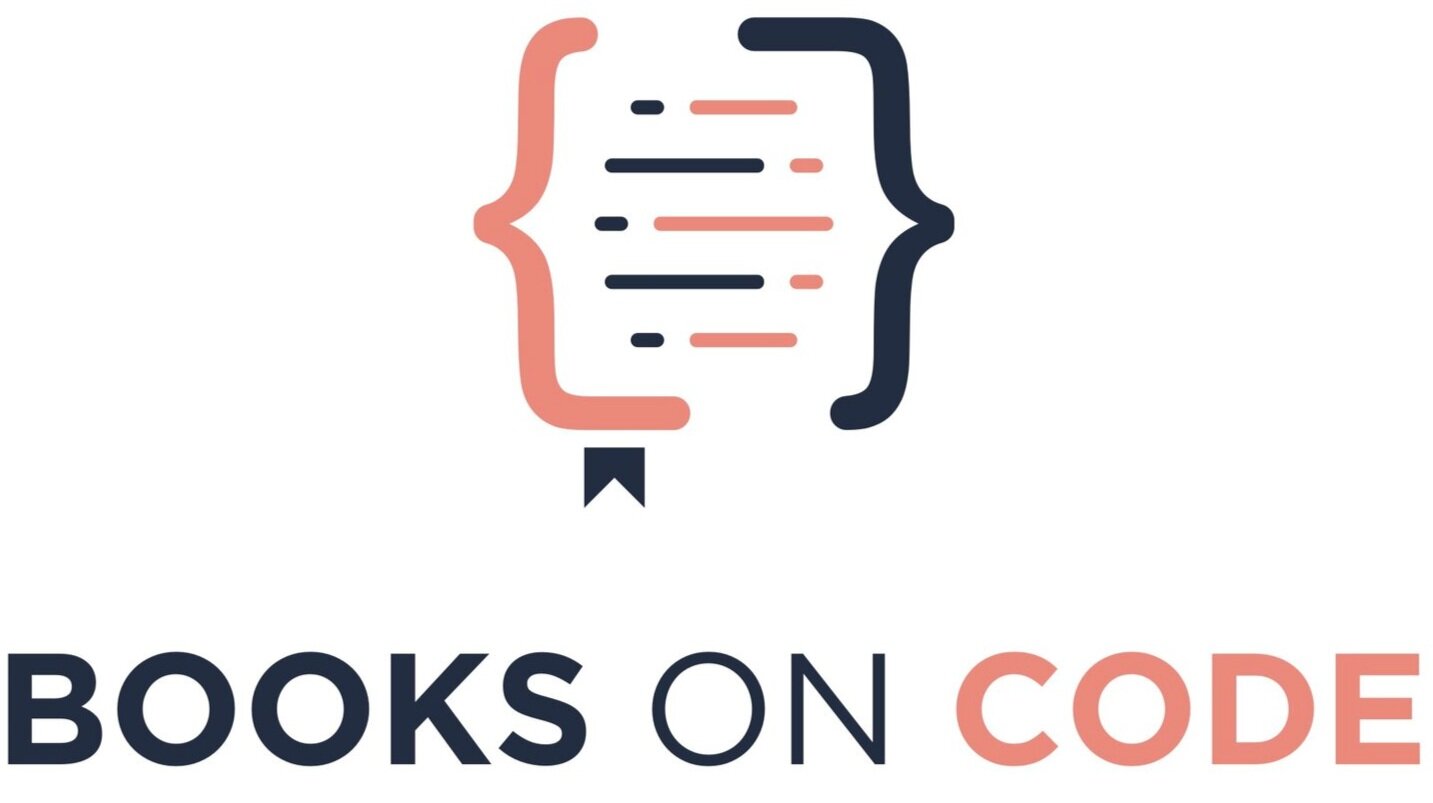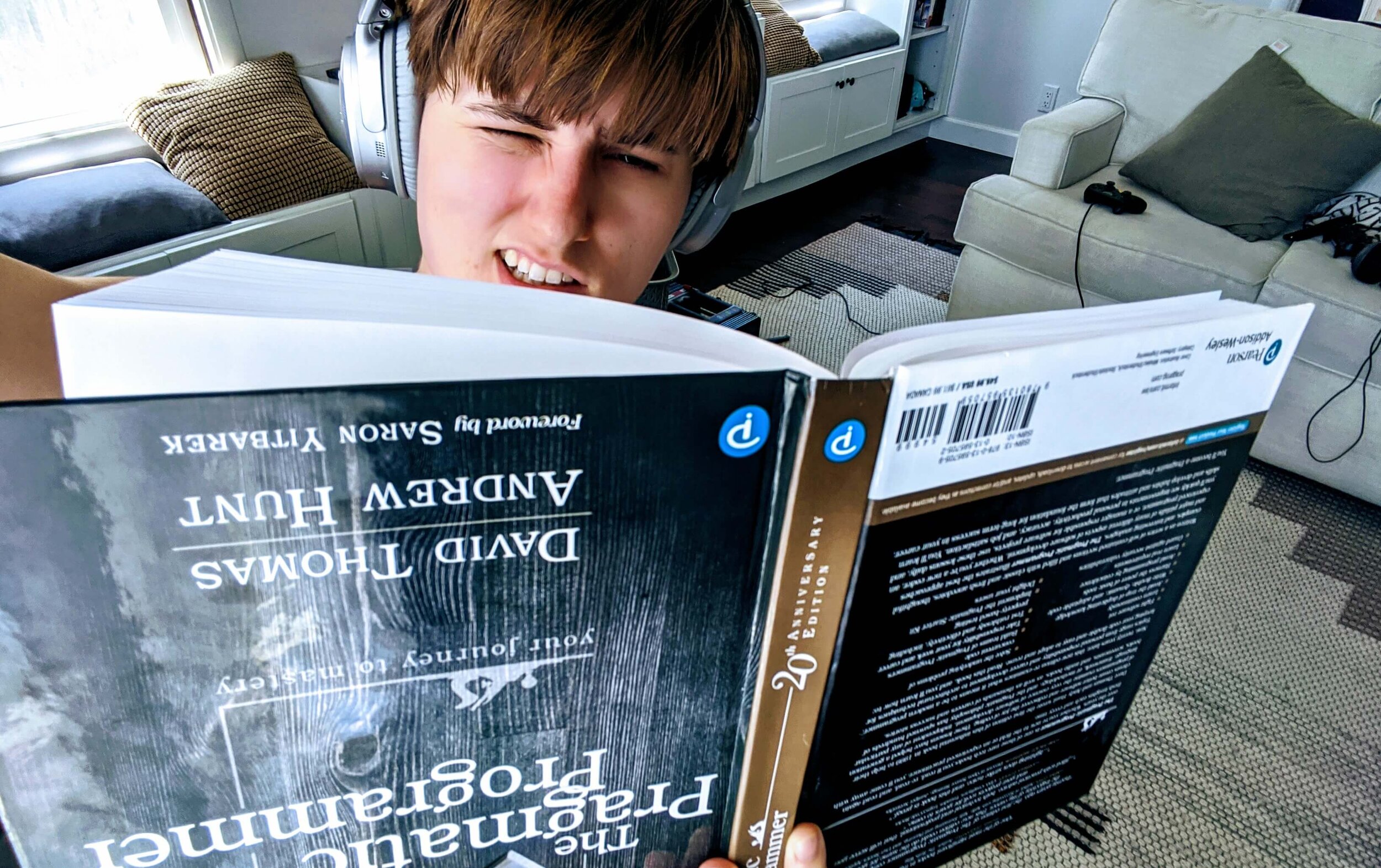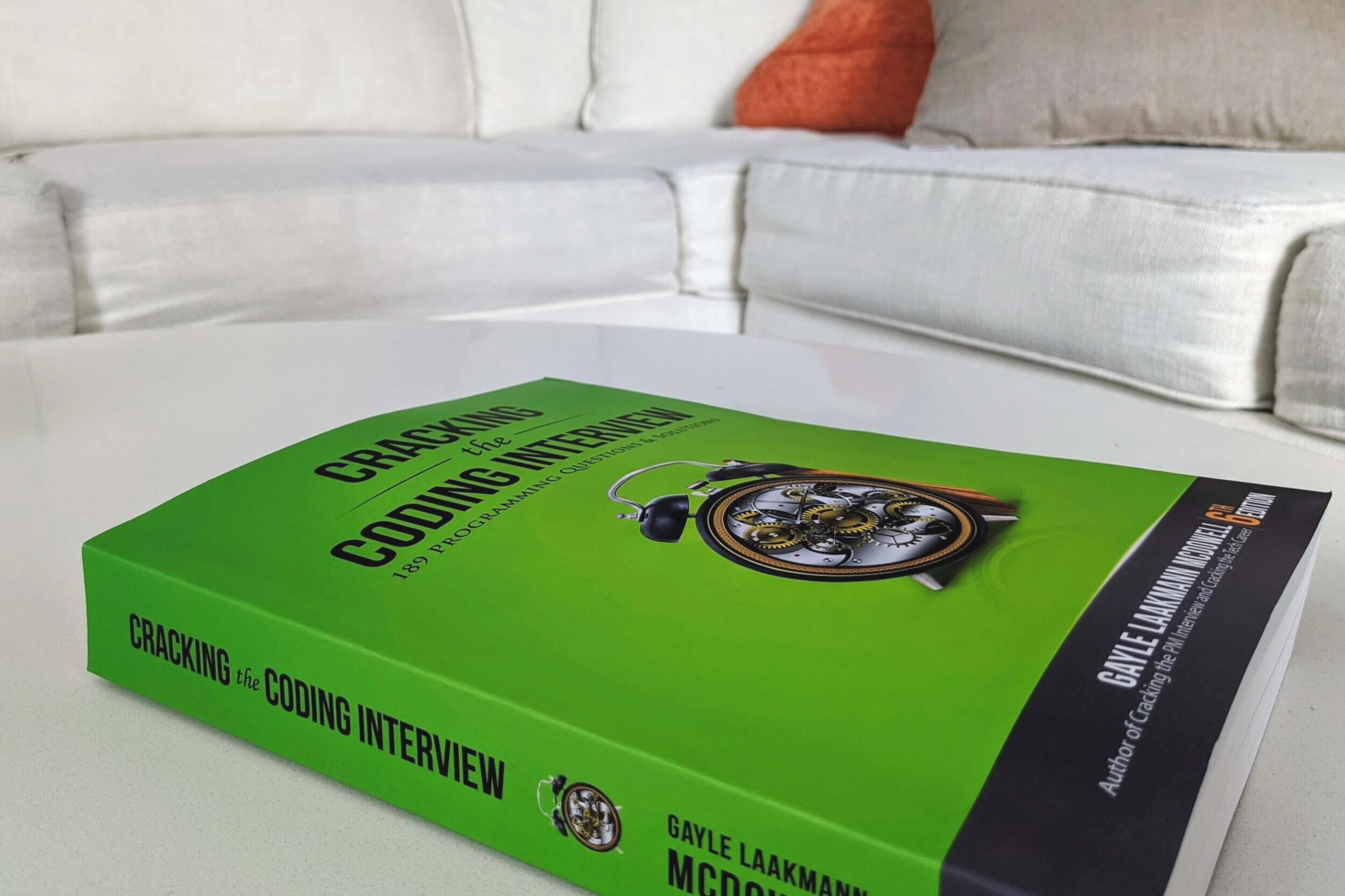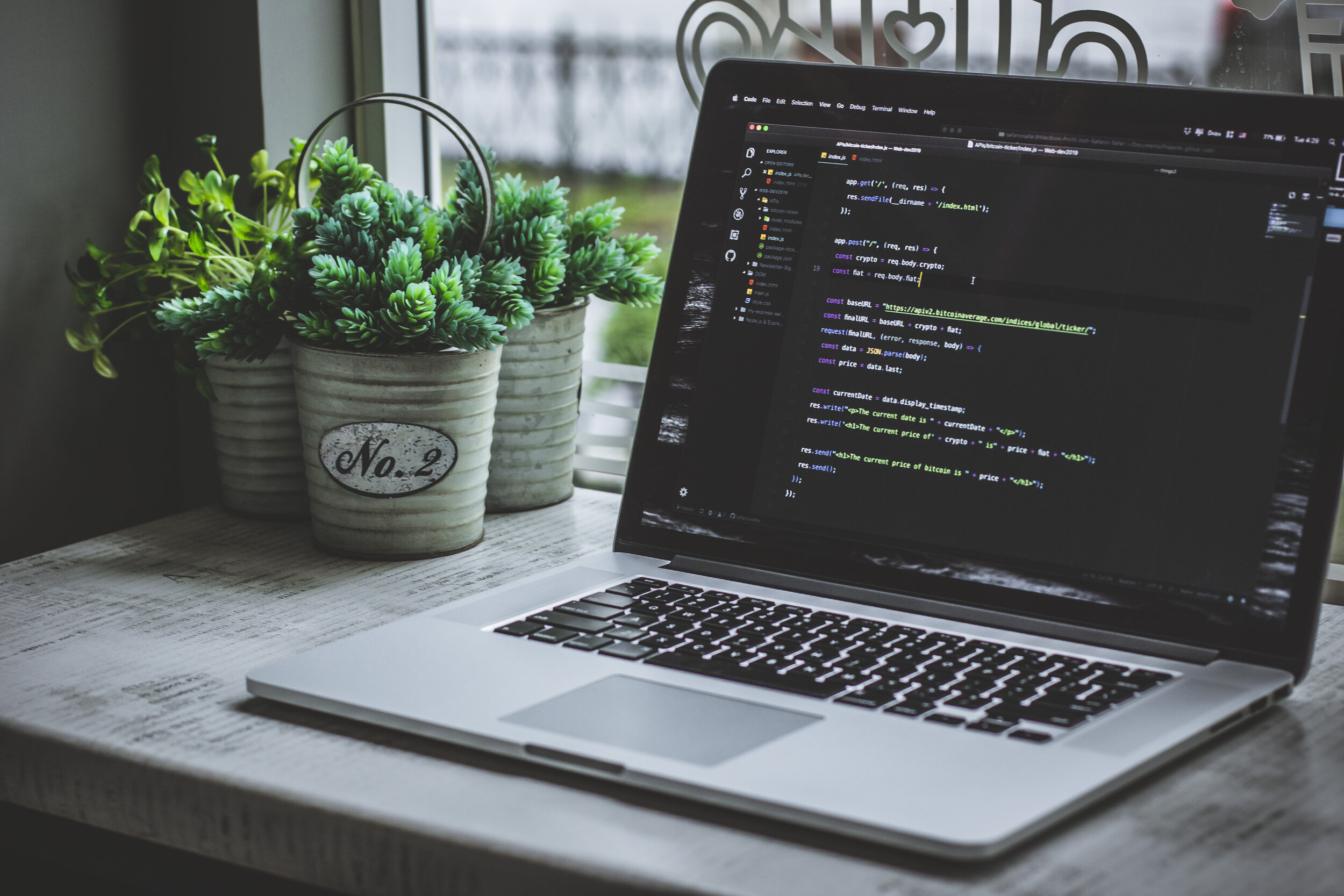How to Read Programming Books
Hi, I’m Miranda (pictured above). Through a lot of hard work, I learned how to read programming books.
So you want to know how to study technical books (like computer programming books), quickly and efficiently, so that you actually learn something.
It seems simple, but it really isn’t.
When you pick up a large textbook hoping to learn an entirely new and foreign skill like your first programming language, it can feel intimidating. The cover of the book is all blue and corporate. The words are dense and full of jargon. You go cross-eyed and wonder if you are perhaps too stupid to learn to program.
But get that out of your head right now. You’re not stupid.
The truth is that there are a lot of bad programming books out there that are just no fun. Despite the common wisdom you learned in elementary school, boredom is not mandatory when it comes to learning. In fact, boredom is the opposite of engagement, therefore the opposite of learning.
As a working senior technical writer at a large software company, I know exactly the flavor of sweat and tears that goes into a technical book.
I have knowledge I can share about how to read programming books, how to study technical books effectively, and get the confidence that you are on the first steps to becoming a brilliant software developer.
How not to read programming books
See the tips below to know just what skills you need to be terrible at studying technical books:
Tip 1: Pick a programming book that looks hard to read
Cracking the Coding Interview is nearly 700 pages of agonizing algorithms problems that take tens or even dozens of hours to study. While I recommend studying this book, it is no picnic.
Find the biggest book with the longest wall of text you can find. Bonus points for if the font is small. When you look at the table of contents, it should be both a mile long and cover everything imaginable -- from beginner to advance topics, including little-known niche features that programmers almost never need to use.
The book may be hard to read — and you may be falling asleep trying to read it now as I write to you. But it’s worth it: reading this book shows you’re smart. When you go to coffee shops and slam that massive text on the table, you will feel on top of the world. Don’t forget to tell the very interested barista that you’re “partaking in light reading”. It’s sure to impress.
Tip 2: Read every word (and more than once!)
Read words and words and words. The end is never in sight.
The most important part of reading a book is reading it cover-to-cover. Otherwise, you can't truly say that you have read the programming book, can you? Even if it takes you weeks to get through it, and even if most of the material is not immediately relevant to you as a beginning programmer, there is no such thing as too much preparation. In order to be able to call yourself a programmer, you need to be sure that you’re well studied. That’s why you picked up that book in the first place, right?
Tip 3: Save hands-on programming for last
You can become an expert programmer and never write or run a single line of code!
Let’s face it: you need to be an expert on the language before you even write your first line of code. It’s essential that you study, and study, and study… Even if it takes you years, even if you feel like you will never become a programmer. Just keep reading, and one day you will know the programming language like the back of your hand — and then! Only then, will you be able to begin programming and call yourself a programmer.
Tip 4: Read because you have to
Good things in life are things we hate. The more agony we spend while studying, the better!
Read the book not because you want to, but because you have to. What other way are you going to get all of the information you need to pick up a skill in one place? Studying with programming books is the best and only real way to get the information. Other online resources like online classes or video classes like on YouTube or Pluralsight* are not real, legitimate sources for learning. Think about it: technical books have stood the test of time, and publications mean that the information is more vetted and better than any other source.
* Pluralsight link is a referral link
How to read programming books effectively
Yay! Now it’s time for the real methods to learn to read programming books. Spoiler: reading should bring you joy and not pain. See that woman above? That’s how happy you will be after you learn how to read technical books effectively.
Now that we went through the fun exercise of imagining what we would not want to do, that frees our minds to think of what we do need to do to get the most from our programming book experience. By the way, I have so much to say on this topic that I wrote a free course called Get the Most From Technical Books (For Programmers), that you can sign up for and start immediately.
Below, find how to study programming books and be happy and engaged while doing so:
Tip 1: Read only good books
Sounds simple, doesn’t it? But you won’t believe how many people read bad books without knowing it. We trust that books have authority, but they can be just as fallible as any other media. Choose to read technical books that are written in a clean and structured style.
You can tell a lot just by glimpsing at the page: if you are not overwhelmed, that’s a great sign that the book is well designed. Books that employ learning tools like a conversational writing style and illustrations get bonus points for not only providing valuable information, but structuring it in an engaging way that will jumpstart your learning.
Tip 2: Study selectively
You don’t need to read every word of a book. You don’t even have to read every chapter. The key to reading technical books is to get the most value for the time you invest.
Really. That’s it.
If you reframe your reading experience as extracting tangible value from everything you read, you waste a lot less time slogging through books for the sake of slogging through them. How do you know what parts to read? That leads me to the next tip.
Tip 3: Program first, read second
To know what you need to be reading, you need to already have questions and problems you are actively working through. This is essential, because your mind discards information it deems useless even though you really want to learn it.
No matter how loudly you think, “This is important,” your subconscious is going to say “Nah” if it doesn’t see where that information applies in your life. Your lizard brain is searching for details that pertain to your survival, so you need to manufacture a way for your brain to see programming skills as survival.
It’s simple: you program first — even while knowing nothing! When you put yourself through the struggle of trying to solve a problem, your mind is suddenly thirsty for answers. That way, when you pick up your textbook, the experience is far richer.
Tip 4: Study because you want to learn
Have your heart in the right place when you learn to program. You are not learning to program just for profit or for your family or for your ego. You’re doing it because it might be your calling — something you will grow to love. If you are unsure or you're still exploring if programming is your path, you can do some soul searching with valuable career assessments like the Clifton StrengthsFinder. My number one strength in the StrengthFinder assessment is Learner. Here’s a piece of it’s description:
People with strong Learner talents constantly strive to learn and improve. The process of learning is just as important to them as the knowledge they gain. The steady and deliberate journey from ignorance to competence energizes Learners.
If that description resonates with you, you are likely in the right place, my friend.
Where to go from here
If you want more on how to study technical books effectively, learn faster, and take control of your career, sign up for my free course, Get the Most From Technical Books (for Programmers). At Books on Code, my mission is to be your companion in learning and studying books to master technical skills in programming.
If you are interested in a more hands-on, instructional approach to programming with graded assignments and all, I cannot recommend Coursera’s Fundamentals of Computing by Rice University highly enough. The courses cover “much of the material that first-year Computer Science students take at Rice University.” And being honest — I got far more from this than I did my local university curriculum.
I really want to see you succeed on your learning journey. That’s why at Books on Code, I am always here for you.
If you want even more study tips, I have just a thing: check out this other article called How to Choose the Perfect Programming Book to Read Right Now.
See you there. 👋😁






